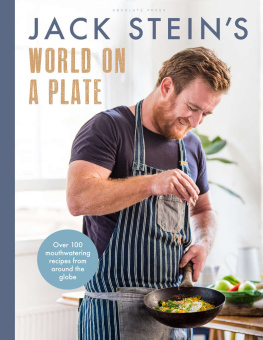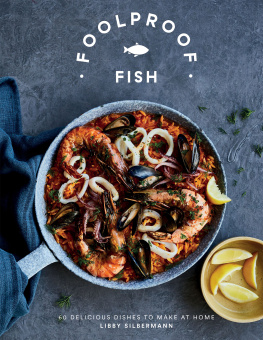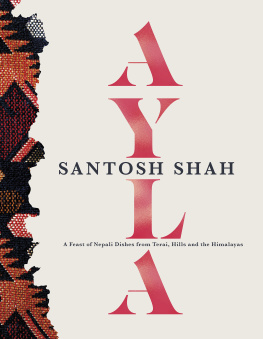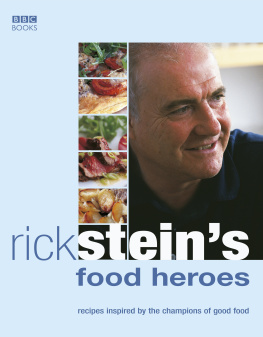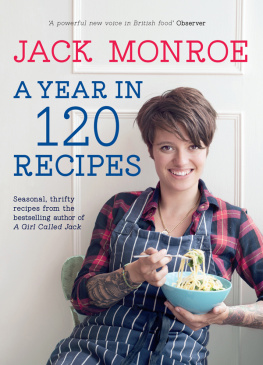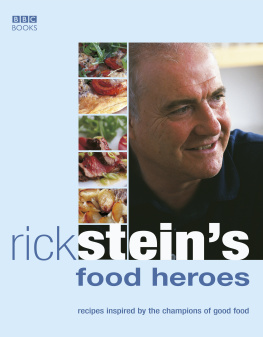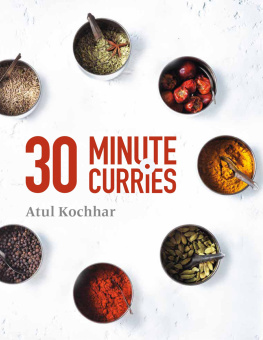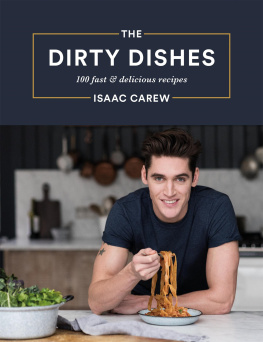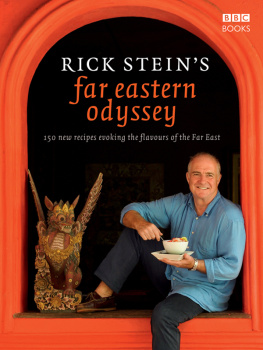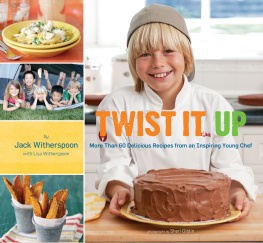
for Lucy and Bocca
Contents

introduction

T he recipes that appear within this book are my own versions of ones that I have loved throughout my life and which I return to time and time again. Recipes that never fail me, bringing comfort and pleasure and sometimes simply reminding me of moments shared with friends and family.
For those who are anticipating purity or unadulterated authenticity then there is, Im sorry to say, disappointment ahead most of the recipes here have been finessed by me, sometimes fiddled around with and occasionally radically overhauled. But the reasons for so doing have always been driven by a passion to develop the perfect flavour combination and gastro-pleasure hit. Simple deliciousness in other words!
We all have an earliest food memory. Mine is oysters! I was three or four years old and on holiday with my family in France. My elder brother Ed was given a fresh oyster and swallowed it whole. So I had to have one peer pressure works not only for games and dares but also for exploring the wonders of shellfish
This book is in part a collection of culinary and gastronomic memories built around growing up in a prototypical foodie household with parents who spent three months of the year searching out new ideas and unexpected flavours for their restaurant back in Cornwall.
Unsurprisingly this experience had a profound effect on the way that I cook today. I quite simply see the worlds food as a vast and wondrous palette with which to paint anything and everything I want.
As a child I loved observing my parents passion for exploring the food markets of the world and the way that they delighted in experiencing new ingredients and exotic sauces and spices. Bit by bit the world they discovered began to come back into their restaurant kitchen and many of the classical rules went back out.
They, and we, became food travellers. Every December bags were packed, passports assembled and travel arrangements confirmed and off we set, Jules Verne like, around the world in 80 days. My parents, who for nine months of the year were so busy that they were virtual strangers to their three offspring, were for the next three months our constant companions and fellow adventurers. Our way was usually East to Australia via India, Thailand and Hong Kong, then on to the Americas and home. By which time, it has to be said, we were fairly sick of each other and eager to get back to the reassuring normality of our Cornish fishing village.
This intense food and travel experience, year after year, became part of who I am, and though the precise details of the trips escape me now the flavours and sensations have stayed with me ever since. Because of this, when I am playing around in the kitchen I find it very easy to switch between say Singapore, Mexico, Thailand or India. So I have no problem with using the influences and flavours I experienced on my travels when cooking European or British dishes at home. In fact I revel in it. My Sunday roast gravy, for example, includes soy sauce, Thai fish sauce, kecap manis sauce and star anise and its wonderful.
My parents repeatedly advised me not to become a chef. I think they feared that the long hours and harsh and sometimes brutal conditions werent for me and that the fragile and delicate creature they had brought into the world deserved a life of study and contemplation. So after finishing school I set off to Cardiff University to read psychology. But during this time away in academia I discovered that I could not only cook but also had a passion to learn more about the physiology and psychology of taste and smell. It was the time of food academics like Harold McGee and chefs such as Heston Blumenthal and Ferran Adria.
I was hooked at least in theory.
My initial foray into formal chef training spurred me into questioning accepted assumptions about food and flavour. Why always lemon with fish? Why always add salt to sauces to bring out flavour?
Once established with the basic techniques and rules of the professional kitchen I set off fairly sure that the Michelin Guide world and its stars was to be my destiny. I found my way into kitchens in Paris, Sydney and the south of France.
Thankfully and fortuitously it didnt take long for me to realise that I had picked the wrong guide and the wrong guiding star system to be led by, and that my parents had been right all along. Take amazing local ingredients, tell their story on a plate and dont mess around with them too much.
I hope that this book will show that it is perfectly possible, perhaps even desirable, to look back and celebrate our recent history in food and cooking whilst at the same time hoping to move the conversation on and hopefully up.
I was immensely proud of my dads book Rick Steins Food Heroes which came out in the early 2000s because it was a rallying cry to the British public to use or lose bespoke and artisan. It has helped enable my generation of chefs to have the best raw ingredients with which to build our dishes. Its influence has also ensured that the general cooking public has the same building blocks as the professionals when it comes to creating wonderful dishes in the kitchen.
So hold on tight to the simple philosophy of taking the best possible ingredients, treating them with respect and having fun with them. And if you are the kind of cook who doesnt like being bound by the old ways and enjoys experimenting with new flavours and techniques from around the world then this book is most definitely for you.
Thirty years of being front and centre as my parents built one of the most successful restaurants in Britain gives me a great sense of pride in their achievement and in the legacy they have passed on to me and my two brothers Ed and Charlie as well as to the industry in which they work.
This book is a proud product of my culinary upbringing and comes with a pedigree which I hope shines through every page.
Enjoy!
Jack Stein
Cornwall, 2018




travel
Without travel this book would not exist, and I would be a different and, to my mind, a less complete individual. I believe very strongly that when you travel to a new country it is through the food that you can most profoundly link your experience with the culture and the people that live there. So many times in my life I have sat eating with the street hawkers or local tuk-tuk drivers and have watched the cooks, and found myself able to communicate through food alone. It is universal, and I thank my parents for the amount of travel we did when we were young. Admittedly it wasnt always easy. For example, being 11 years old and seeing the poverty in India for the first time was tough, but I think its essential to face such problems even if you are too young to comprehend completely what is happening.
Next page
